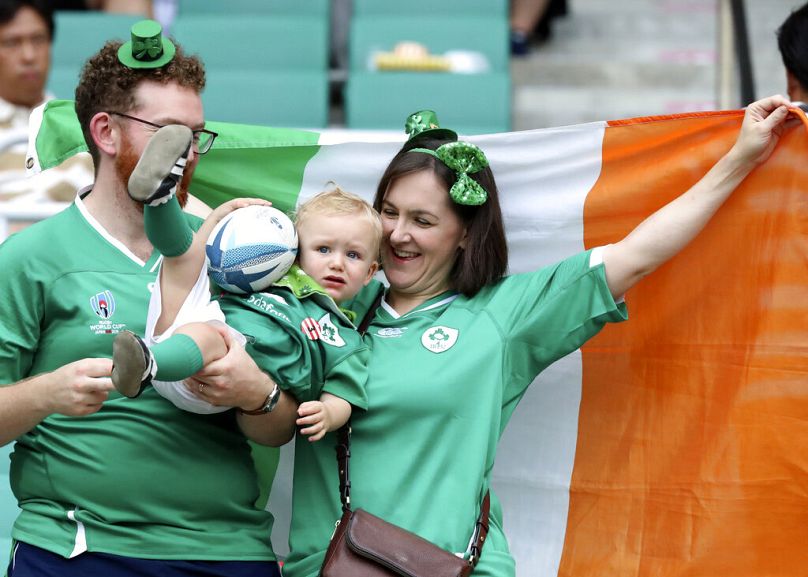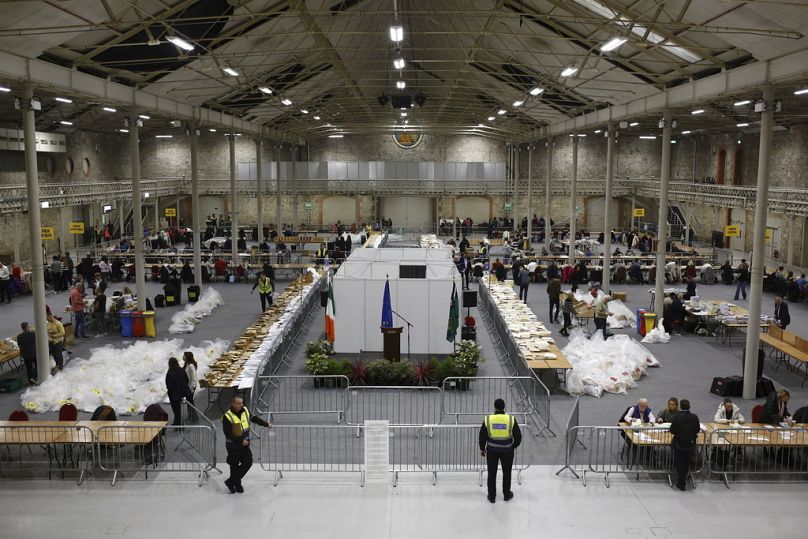Voters in the Republic of Ireland have voted overwhelmingly against changing the constitution's definition of family and women, in an embarrassing defeat for the Irish government.
Irish Prime Minister Leo Varadkar conceded defeat Saturday as two constitutional amendments he supported that would have broadened the definition of family and removed language about a woman’s role in the home were headed toward rejection.
 ADVERTISEMENT
ADVERTISEMENT
 ADVERTISEMENT
ADVERTISEMENT
Varadkar, who pushed the vote to enshrine gender equality in the constitution by removing “very old-fashioned language” and tried to recognise the realities of modern family life, said that voters had delivered “two wallops” to the government.
“Clearly we got it wrong," he said. “While the old adage is that success has many fathers and failure is an orphan, I think when you lose by this kind of margin, there are a lot of people who got this wrong and I am certainly one of them.”
Opponents argued that the wording of the changes was poorly thought out — an argument that appeared to have gained traction in the final days of the campaign. Voters said they were confused by the questions and others said they feared changes would lead to unintended consequences.
Moving away from the Catholic Church
The election was viewed as part of Ireland’s evolution from a conservative, overwhelmingly Roman Catholic country in which divorce and abortion were illegal, to an increasingly diverse and socially liberal society. The proportion of residents who are Catholic fell from 94.9% in 1961 to 69% in 2022, according to the Central Statistics Office.
The social transformation has been reflected in a series of changes to Ireland’s Constitution, which dates from 1937, though the country was not formally known as the Republic of Ireland until 1949.
Irish voters legalised divorce in a 1995 referendum, backed same-sex marriage in a 2015 vote and repealed a ban on abortions in 2018.
The first question dealt with a part of the constitution that pledges to protect the family as the primary unit of society. Voters were asked to remove a reference to marriage as the basis “on which the family is founded” and replace it with a clause that said families can be founded “on marriage or on other durable relationships.” If passed, it would have been the constitution’s 39th amendment.
A proposed 40th amendment would have removed a reference that a woman’s place in the home offered a common good that could not be provided by the state and delete a statement that said mothers shouldn’t be obligated to work out of economic necessity if it would neglect their duties at home. It would have added a clause saying the state will strive to support “the provision of care by members of a family to one another.”
All main political parties said 'yes'
The debate was less charged than the arguments over abortion and gay marriage. Ireland’s main political parties all supported the changes, including centrist government coalition partners Fianna Fail and Fine Gael and the biggest opposition party, Sinn Fein.
One political party that called for “no” votes was Aontú, a traditionalist group that split from Sinn Fein over the larger party’s backing for legal abortion. Aontú leader Peadar Tóibín said the government’s wording was so vague it will lead to legal wrangles and most people “do not know what the meaning of a durable relationship is.”
The Free Legal Advice Centers, a legal charity, expressed concern the change to the section on care contained “harmful stereotypes such as the concept that the provision of care … is the private responsibility of unpaid family members without any guarantee of state support.”
Some disability rights campaigners argued the emphasis on care treats disabled people as a burden, rather than as individuals with rights that should be guaranteed by the state.
Opinion polls had suggested support for the “yes” side on both votes, but many voters remained undecided as Friday’s polling — held on International Women’s Day — neared and some said they found the issue too confusing or too hurried to change the constitution.
“I thought it was too rushed,” said Una Ui Dhuinn, a nurse in Dublin. “I felt we didn’t get enough time to think about it and read up on it. So I felt, to be on the safe side, ‘no, no’ — no change.”
Caoimhe Doyle, a doctoral student, said she voted yes to changing the definition of family but no to the care amendment because “I don’t think it was explained very well.”
“There’s a worry there that they’re removing the burden on the state to take care of families,” she said.












